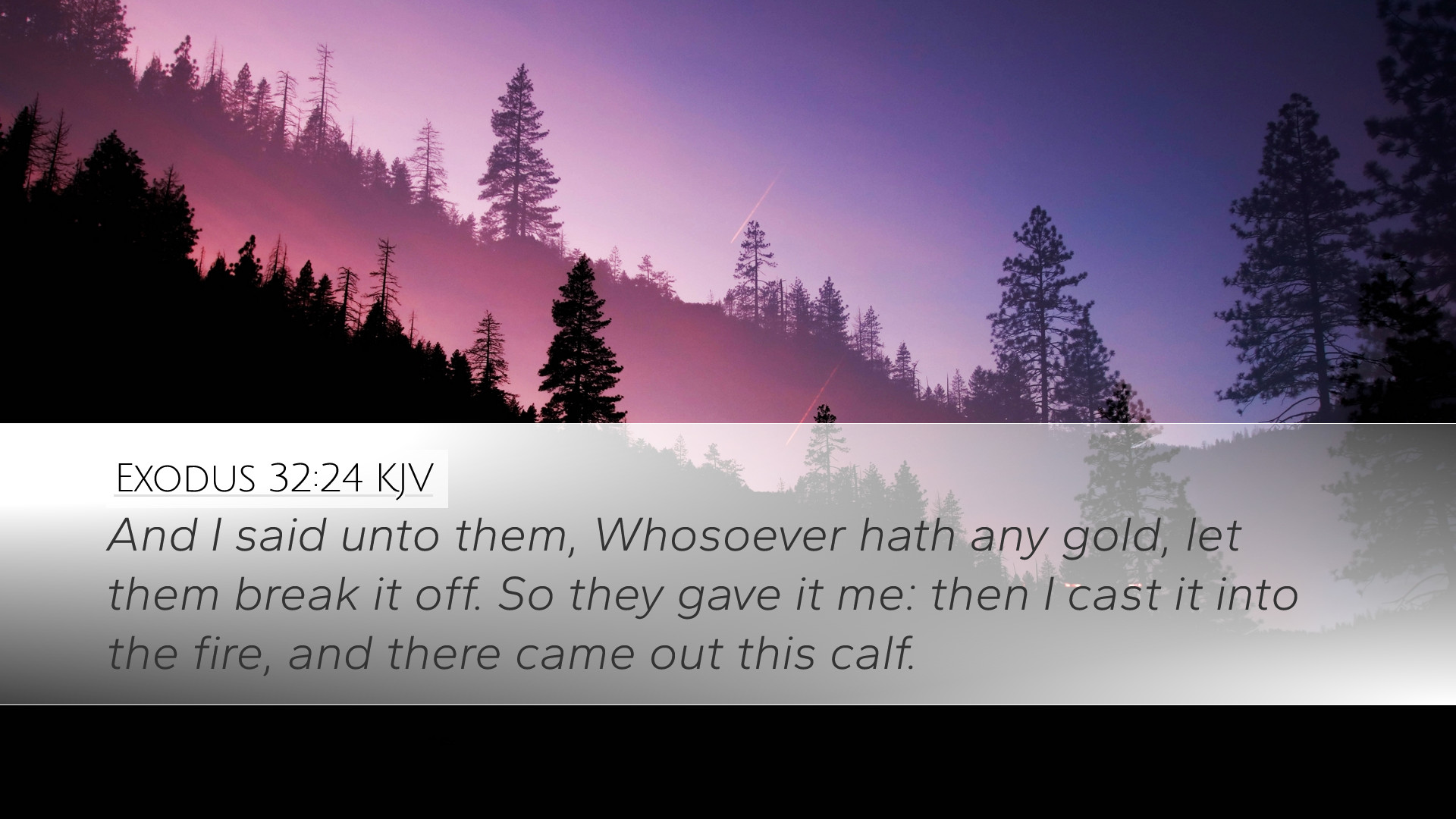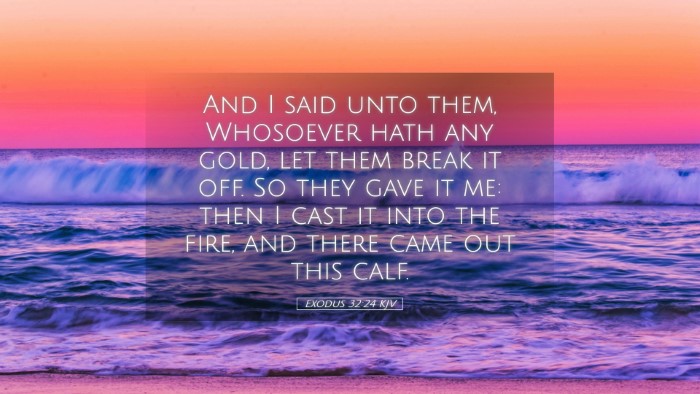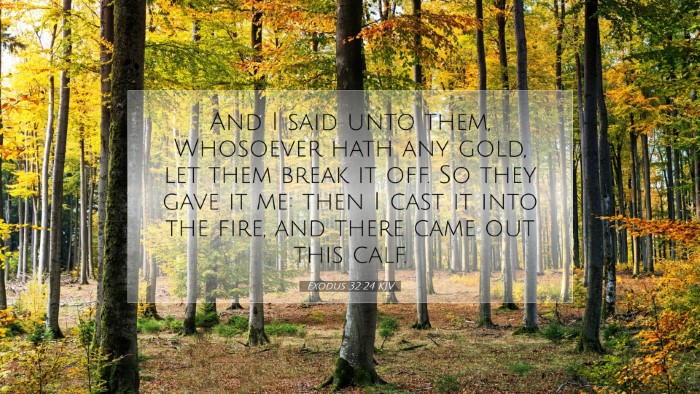Exodus 32:24 Commentary
Bible Verse: Exodus 32:24 (KJV): "And I said unto them, Whosoever hath any gold, let them break it off. So they gave it me: then I cast it into the fire, and there came out this calf."
Contextual Overview
The passage occurs during an intense period in Israelite history when Moses is on Mount Sinai receiving the Ten Commandments from God. While he remains in communion with the Lord, the people grow restless and, influenced by the absence of their leader, they demand an idol. This verse highlights the pivotal moment wherein Aaron, succumbing to the people's pressure, ultimately constructs the golden calf.
Commentary Insights
1. Aaron's Role and Accountability
Matthew Henry emphasizes that Aaron’s actions reveal his moral shortcomings. Though he was appointed as the acting high priest, his failure to stand firm against the people's demands resulted in significant sin. Henry notes that leaders have a solemn responsibility to guide the flock, and Aaron's compromise shows the dangers of yielding to popular opinion instead of divine command.
2. The Nature of the Golden Calf
Albert Barnes draws attention to the symbolism of the golden calf. He explains that the calf was not merely an object of worship, but reflective of Egypt's idolatrous practices, serving as a representation of a tangible god. This act of creating an idol highlights the human tendency towards the physical manifestation of spirituality, often leading to disastrous consequences.
3. The Fire and the Calf's Emergence
Adam Clarke provides insight into Aaron's peculiar statement: “I cast it into the fire, and there came out this calf.” Clarke suggests that Aaron’s attempt to deflect responsibility serves as a critique of his leadership. He implies that the formation of the calf was not merely a supernatural occurrence; rather, it underscores a mixture of deception and resignation on Aaron’s part. Clarke emphasizes that sin often begins with an attempt to shift blame, a continuing human flaw.
4. Application for Leadership
This passage holds profound implications for those in positions of leadership within the Church. As pastors and church leaders, the commentary encourages a steadfast adherence to God’s commands while cautioning against the allure of conforming to congregational demands. Each individual is called to a higher standard, one that resists the temptation to compromise for the sake of popularity or convenience.
5. Theological Implications
Matthew Henry reflects on the theological ramifications of the Israelites turning to idolatry. This act signifies a breach of covenant with God and demonstrates humanity's inherent inclination toward sin. It prompts a necessary reflection on the nature of faithfulness and the importance of continually seeking God's presence and guidance, especially in times of uncertainty.
6. The Reflection on Human Nature
Albert Barnes again provides a salient point regarding human frailty. The Israelites’ rebellion in worshipping the calf reveals a significant insight into the human heart's propensity to stray. This serves as a reminder for all believers of the need to remain vigilant against idolatry, whether in the form of golden statues or contemporary distractions that detract from singular devotion to God.
Concluding Thoughts
Exodus 32:24 reveals a multifaceted narrative of leadership, idolatry, and the human condition. The insights gleaned from renowned public domain commentaries encourage pastors and students of the Scripture to reflect deeply on their commitments. The call is to embrace accountability, to understand the dangers of modern-day idolatry, and to firmly establish a leadership grounded in the unwavering truth of God’s word.
Practical Reflection
- Self-Examination: Are there areas in your life or ministry where you may be compromising your values?
- Identity in Christ: How can we ensure that our identity is rooted in God rather than in societal expectations?
- Community Accountability: Are we as leaders fostering an environment of mutual accountability?


